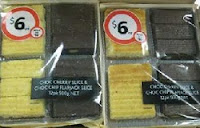The Cadbury brothers are thought to have picked the colour as a tribute to Queen Victoria.
The group, which has been locked in a legal battle with its rival for three years, was granted a trademark for the tint - pantone 2865c - to be used on certain chocolate goods such as Dairy Milk in 2008. Nestle challenged the ruling, arguing that the colour was not distinctive enough to receive a trademark.
The Swiss group's challenge appears to have failed after the registrar at the UK Intellectual Property Office this week ruled in Cadbury's favour, saying it had showed enough "distinctive character" for a trademark. One legal expert said that while it was an interim judgment, the decision was unlikely to be changed in the final report. Nestle can appeal the decision.
A spokesman for Cadbury said the group was "pleased" with the ruling, adding that the colour was something those at the company "jealously guard".
In his ruling, Allan James, the registrar, said the colour purple had built a distinctive character associated with Cadbury. He added that the colour had been used in its advertising campaigns to distinguish the brand. One of the most popular of those campaigns in recent times was the use of a gorilla playing the drums. He rejected claims that Cadbury had registered the colour in bad faith as "absurd".
Fiona McBride, a partner at Withers & Rogers, described the decision as a "major relief" for Cadbury, saying its use of the colour was now "iron-clad and the brand will be unlikely to face further challenges over the use of the colour purple in the future".
Yet, executives at Kraft, which bought Cadbury in a controversial takeover deal earlier this year, will not get carried away with the victory. The trademark was limited to using the colour on its chocolate bars and chocolate drinks. It had not proved such a distinctive character in all confectionery chocolate, Mr James said, or for protection in relation to assortments such as its Roses chocolates.
"Both sides have achieved a measure of success, Cadbury more so than Nestle," he added.
Ms McBride said: "Colour registrations are notoriously difficult to obtain, largely because it can be difficult to prove sufficient use to demonstrate that the colour has become synonymous with the brand in the mind of the consumer."
Cadbury first applied to patent the colour in 2004, although it was not approved for another four years. Cadbury did try to stop the Australian confectioner Darrell Lea from using purple on its packaging. Three years ago, however, its complaint was rejected by the Federal Court in Melbourne.
Article posted by Spencer Samaroo, Managing Director, Moo-Lolly-Bar
The best online chocolate, lolly and confectionery store on the web!
If you like what you have read check out our updates on Facebook and Twitter.
Source and Photo: Gold Coast Mail




























